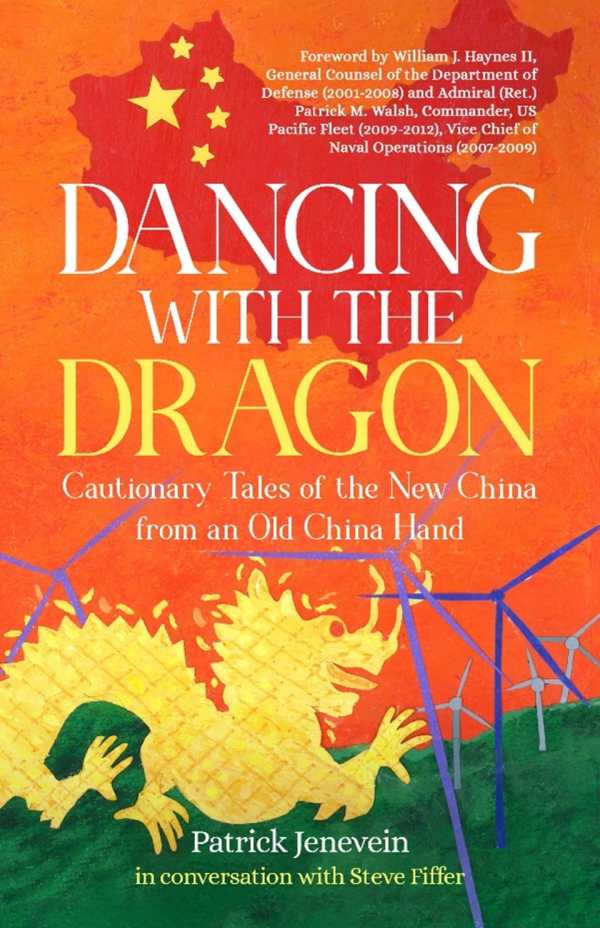Dancing with the Dragon
Cautionary Tales of the New China from an Old China Hand
Marked by good humor, Dancing with the Dragon is a keen businessman’s memoir about daunting, emotionally draining challenges within the world of high-power international business and politics.
Patrick Jenevein recalls lessons that he learned from his business dealings in China in his politically minded memoir Dancing with the Dragon.
Jenevein got into the energy business more or less by accident, but he stayed in it through hard work and innovative ideas. In the mid-1990s, he began working with Chinese businesses and government agencies (the book asserts that the line between the two is often nonexistent) to process natural gas and bring electricity to underserved areas. But when the Chinese company he partnered with reneged on the terms of their agreement, Jenevein was forced into a protracted, risky legal battle with one of the most powerful governments on the planet.
Taking the form of an interview conducted by contributor Steve Fiffer, the book’s detailed discussions focus on Jenevein’s past business dealings and technical aspects of the international energy sector. Anecdotes about the challenges of working within a quite different cultural and political environment—from navigating bugged conversations to eating actual bugs—are interspersed throughout, marked by good humor in the face of daunting, emotionally draining challenges within the world of high-power international business and politics. These interludes are an important reminder that at the heart of the story are human beings who did the best they could under trying and unfamiliar circumstances.
Both Jenevein and Fiffer add political, historical, and cultural context as their conversation moves through detailed stories of Jenevein’s profitable yet fraught business dealings to the suspenseful, drawn-out legal case brought by Chinese manufacturer AVIC (the Aviation Industry Corporation of China), which involved the disappointing betrayal by close friends and associates. Jenevein’s direct advice to businesses and other entities who wish to operate in China is clear, straightforward, and rooted in extensive experience. Indeed, most chapters end with brief, illuminating commentary on a contemporary issue that China faces, such as government corruption and youth discontent. These discussions are expanded upon in the coda, where Jenevein goes into more detail on the difficult but inextricable relationship between the United States and China.
Parts of the coda lean into conspiracy theories about wind farms, though. And other arguments are built on unpersuasive grounds: despite often expressing concern for the welfare of the Chinese people, for example, the book asserts that the proliferation of cheap products from China is a positive for Americans, ignoring that such low prices are only made possible through the exploitation of Chinese laborers and that, in turn, this exploitation reduces job opportunities for Americans who are more often protected by labor laws that prevent such abuses.
Dancing with the Dragon is a revealing businessman’s memoir with political insights into how China does business and how American entities can both prevent and reduce the harm of such practices around the world.
Reviewed by
Eileen Gonzalez
Disclosure: This article is not an endorsement, but a review. The publisher of this book provided free copies of the book and paid a small fee to have their book reviewed by a professional reviewer. Foreword Reviews and Clarion Reviews make no guarantee that the publisher will receive a positive review. Foreword Magazine, Inc. is disclosing this in accordance with the Federal Trade Commission’s 16 CFR, Part 255.

